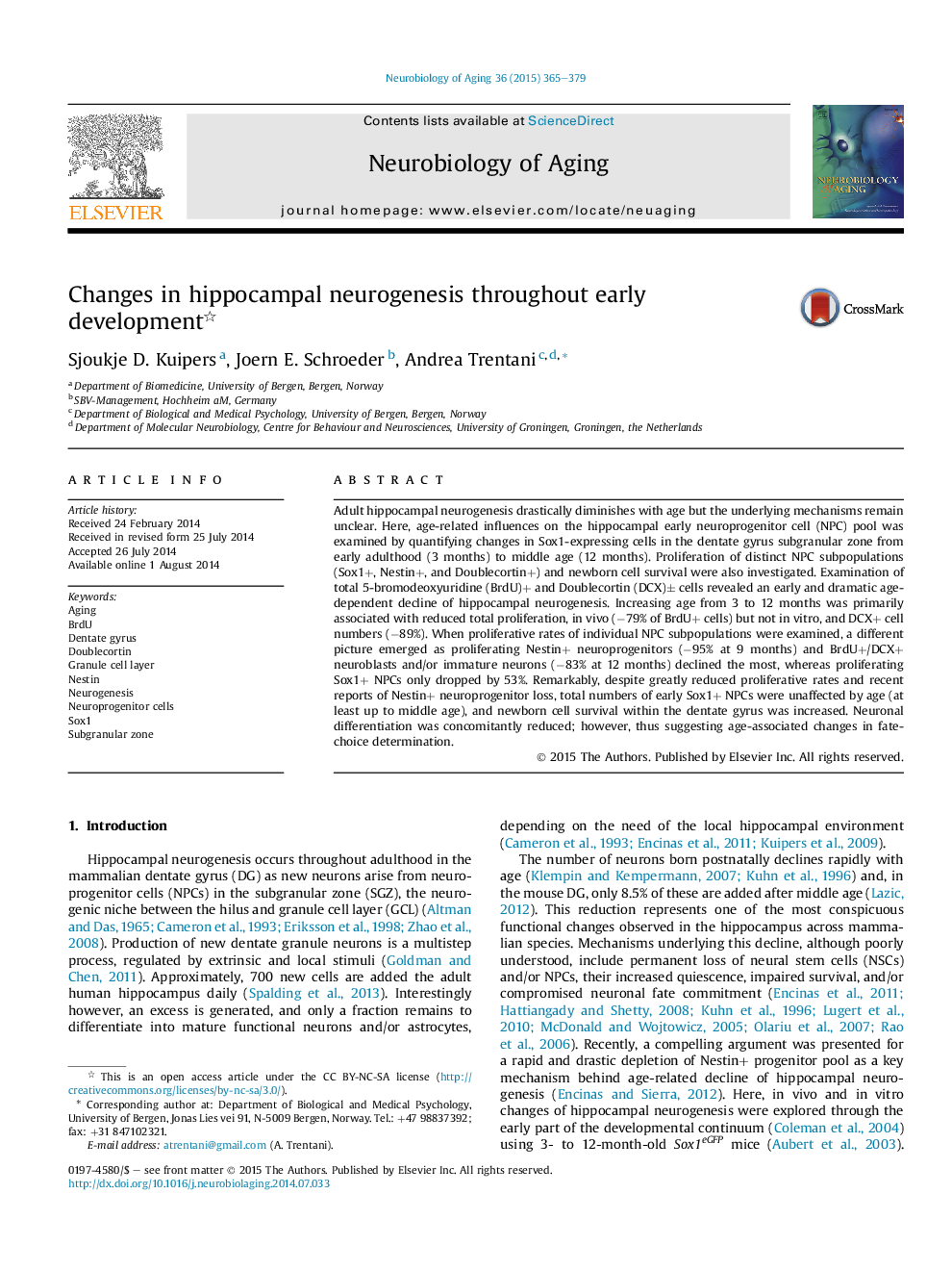| Article ID | Journal | Published Year | Pages | File Type |
|---|---|---|---|---|
| 6805076 | Neurobiology of Aging | 2015 | 15 Pages |
Abstract
Adult hippocampal neurogenesis drastically diminishes with age but the underlying mechanisms remain unclear. Here, age-related influences on the hippocampal early neuroprogenitor cell (NPC) pool was examined by quantifying changes in Sox1-expressing cells in the dentate gyrus subgranular zone from early adulthood (3 months) to middle age (12 months). Proliferation of distinct NPC subpopulations (Sox1+, Nestin+, and Doublecortin+) and newborn cell survival were also investigated. Examination of total 5-bromodeoxyuridine (BrdU)+ and Doublecortin (DCX)± cells revealed an early and dramatic age-dependent decline of hippocampal neurogenesis. Increasing age from 3 to 12 months was primarily associated with reduced total proliferation, in vivo (â79% of BrdU+ cells) but not in vitro, and DCX+ cell numbers (â89%). When proliferative rates of individual NPC subpopulations were examined, a different picture emerged as proliferating Nestin+ neuroprogenitors (â95% at 9 months) and BrdU+/DCX+ neuroblasts and/or immature neurons (â83% at 12 months) declined the most, whereas proliferating Sox1+ NPCs only dropped by 53%. Remarkably, despite greatly reduced proliferative rates and recent reports of Nestin+ neuroprogenitor loss, total numbers of early Sox1+ NPCs were unaffected by age (at least up to middle age), and newborn cell survival within the dentate gyrus was increased. Neuronal differentiation was concomitantly reduced; however, thus suggesting age-associated changes in fate-choice determination.
Keywords
Related Topics
Life Sciences
Biochemistry, Genetics and Molecular Biology
Ageing
Authors
Sjoukje D. Kuipers, Joern E. Schroeder, Andrea Trentani,
